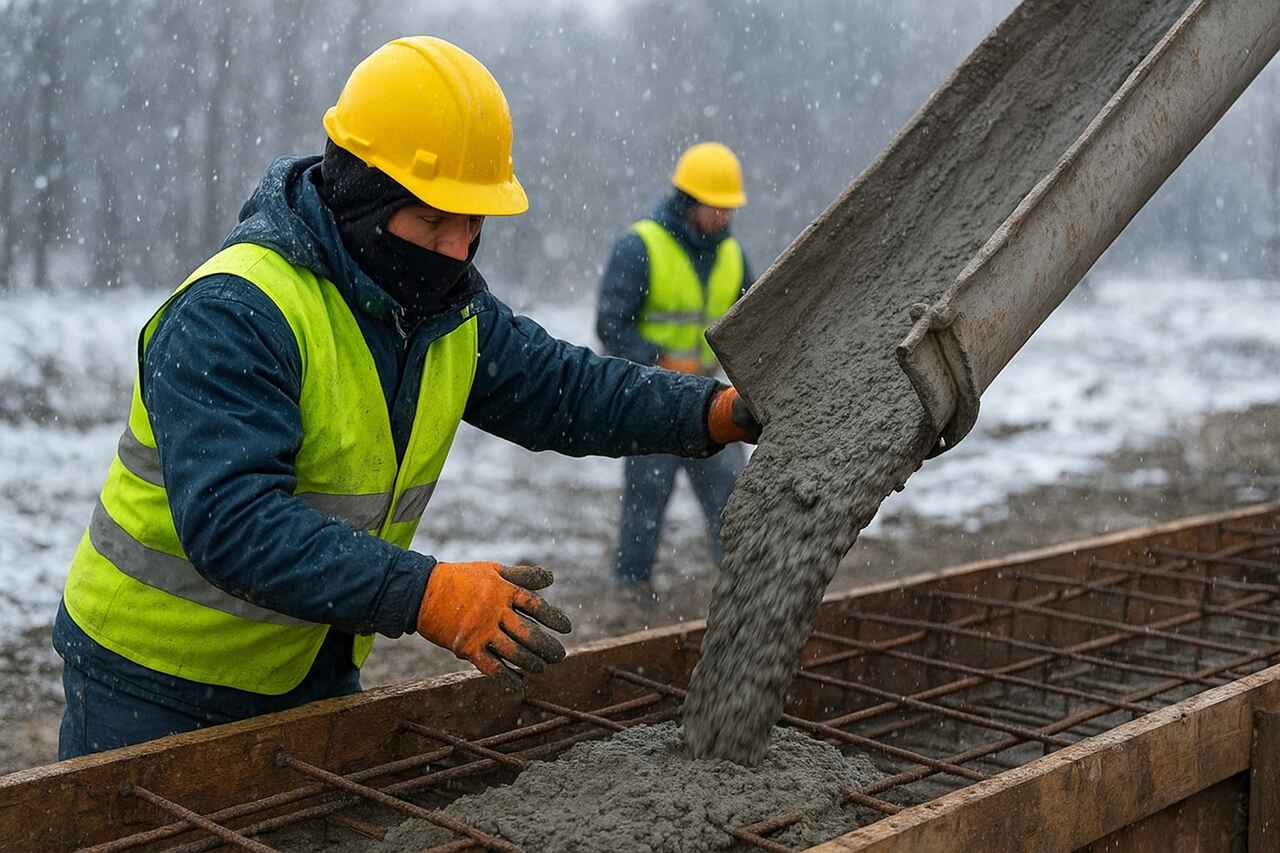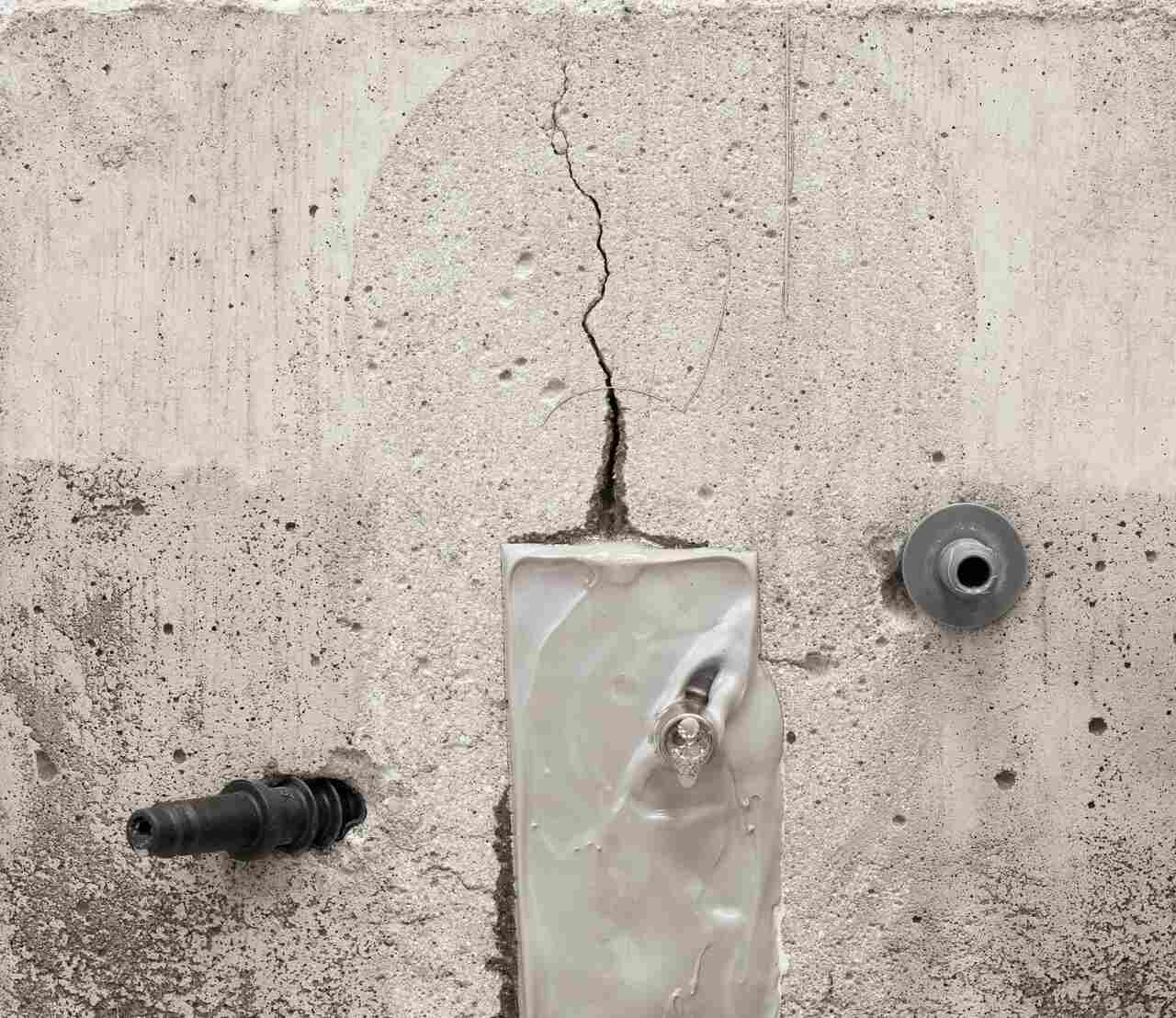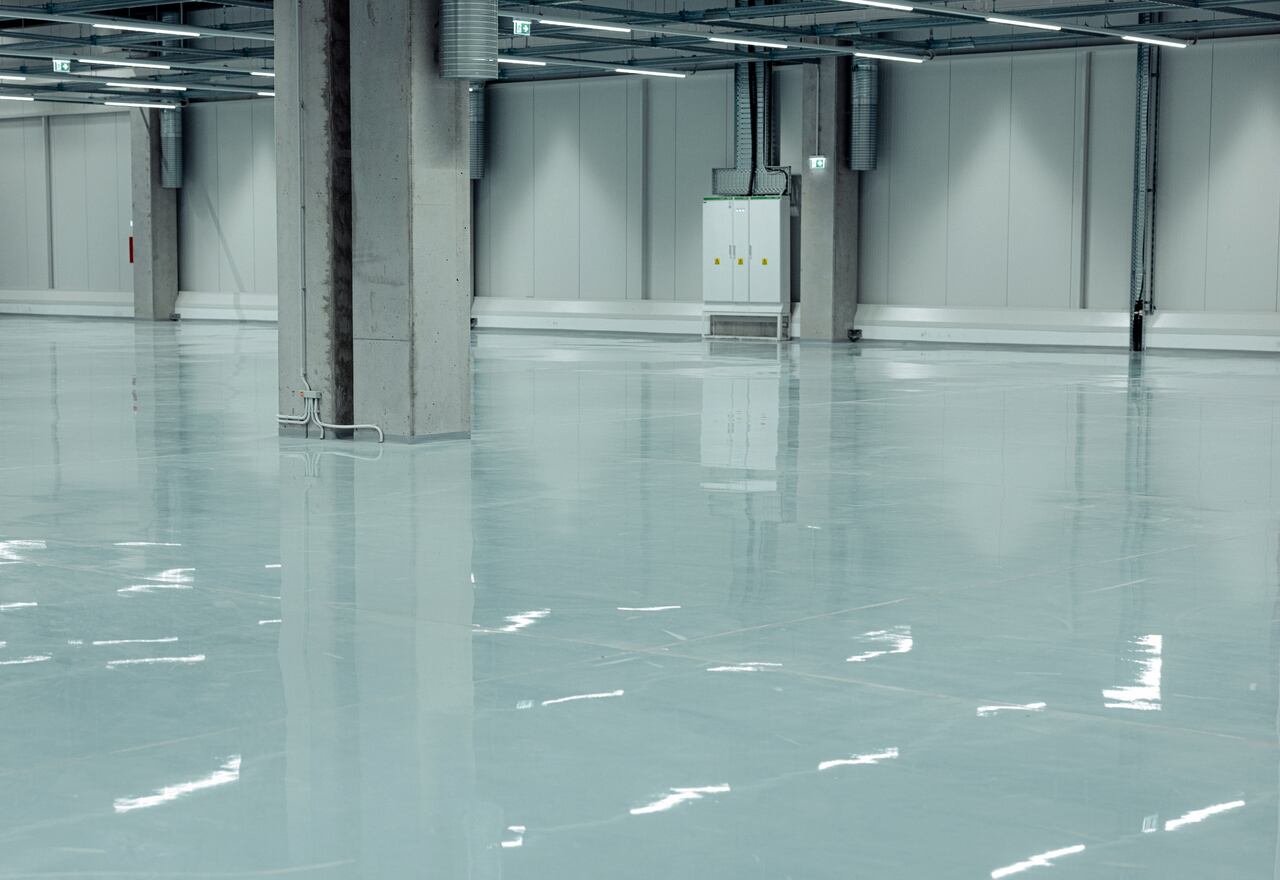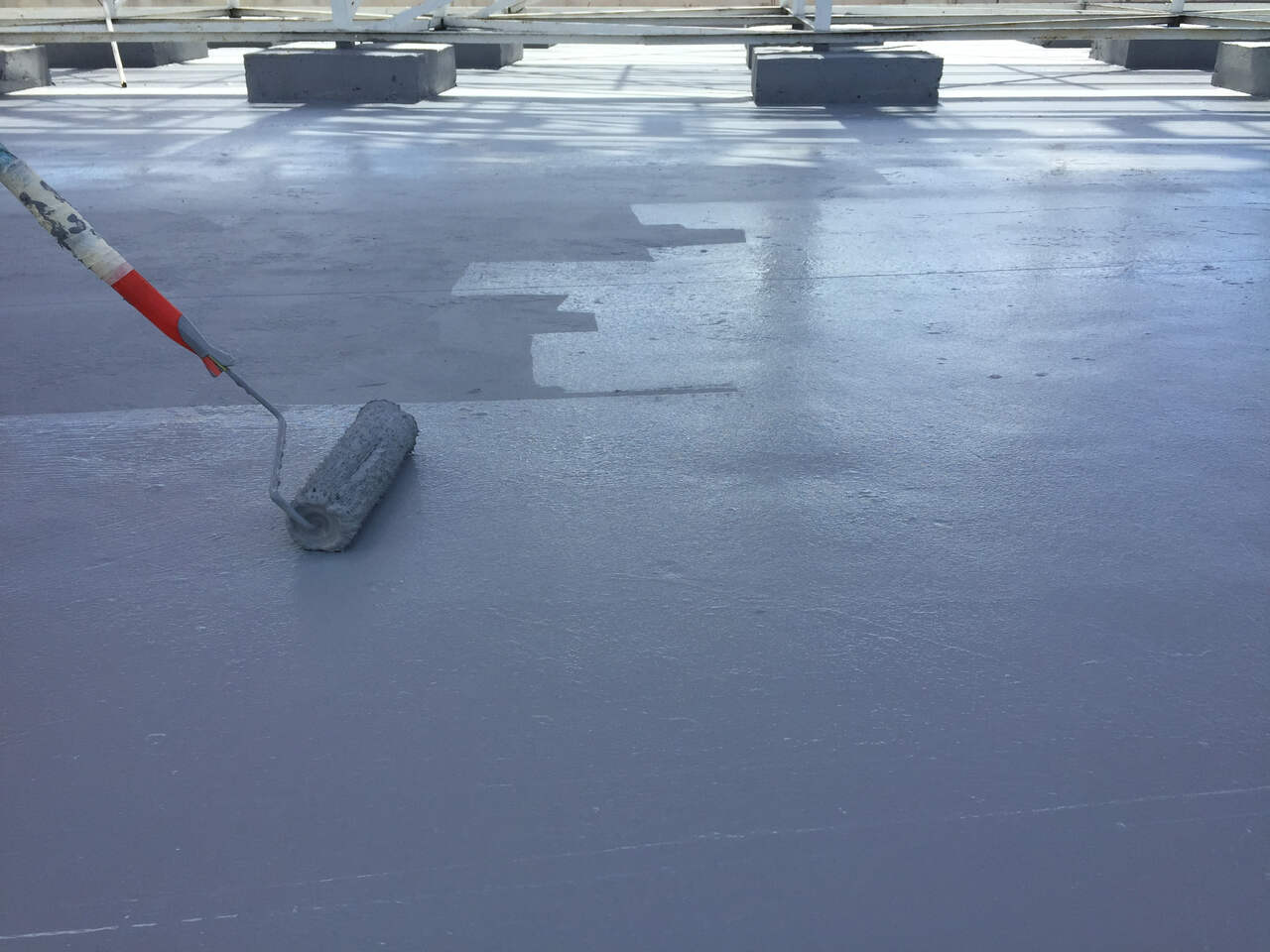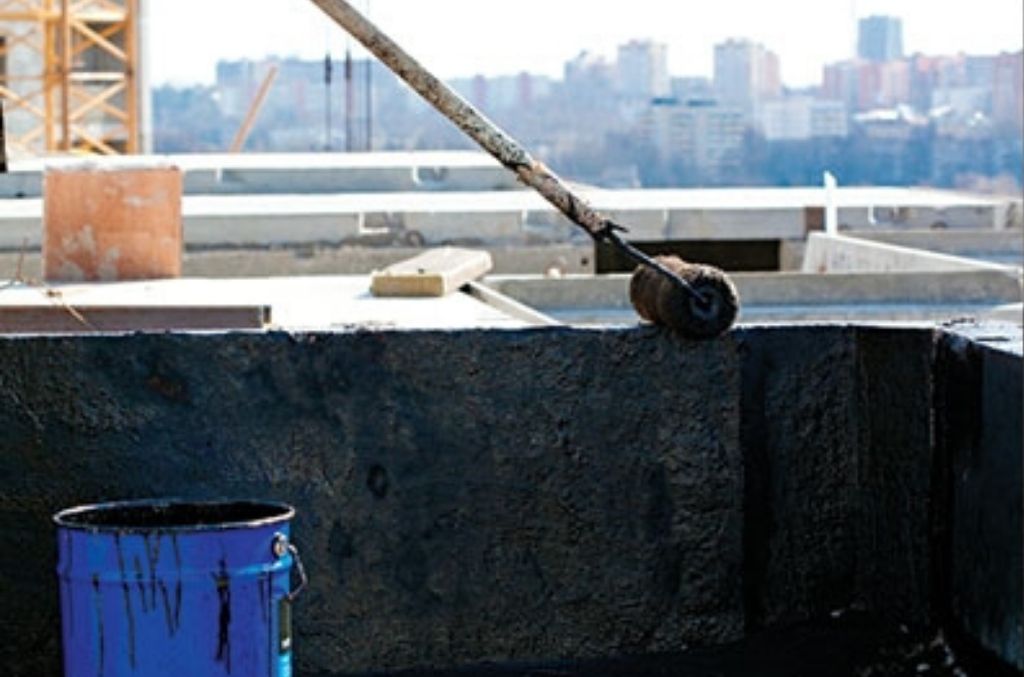
To have an idea about structural waterproofing, it is necessary to get to know the basic materials that make up the building. A typical building is made from concrete, bricks, stones, and mortars. These kinds of materials are composed of crystals of carbonate, silicate, aluminates, and oxides that have abundant oxygen atoms and hydroxyl groups. Cement is the main component of concrete. Concrete is formed by the chemical reaction between the cement and water. This chemical reaction is referred to as hydration.
As a result of the hydration reaction, besides the silicate compounds that give the cement its hardness and strength, also calcium hydroxide components are formed. Calcium hydroxide protects the reinforcement from corrosion since the steel cannot corrode in a highly alkaline condition. Typically, concrete exhibits a pH above 12 because of the presence of calcium hydroxide.
When calcium hydroxide reaches carbon dioxide, calcium carbonate is formed. This reaction is called carbonation. Concrete will harden, and permeability will be reduced during this reaction. On the other hand, calcium carbonate reduces the concrete pH to around 9. At this pH, the protective oxide layer surrounding the reinforcing steel breaks down, and corrosion becomes possible.
Water is an essential element for the hydration reaction. The usage amount of water has a critical role in concrete performance. The strength of concrete increases when less water is used to make concrete. The presence of excess water in concrete reduces concrete performance. If the structure is not well protected from water, the structure will be damaged and degraded. When water comes in concrete through its capillary gaps, the strength of concrete will be lost, and the building will be susceptible to corrosion. Therefore, structural waterproofing is a fundamental protection system.
Which Material Is The Common in Structural Waterproofing?
As we mentioned before, all parts of the building structures from the basement to roofs, such as walls, bathrooms, kitchens, balconies, garages, terraces, roofs, water tanks, and swimming pools, must be protected against water for a durable building. Commonly used materials for waterproofing in buildings are cementitious materials, bituminous membranes, liquid waterproofing membranes, bituminous coatings, and polyurethane liquid membranes.
The most common application in the waterproofing system is bituminous coatings. Bitumen is well known, cheap, high performance, and easily applied material. It is an excellent protective coating and waterproofing agent. The performance of bitumen based material can be increased modified with a more flexible material such as polyurethane or acrylic-based polymers. Also, bitumen-based material can be designed in different forms, such as liquid coating, membrane, tapes, fillers, etc.
What Is The Waterproofing Flashing Tape?
Water damages the buildings, causing mold, decay, and corrosion to reduce structural durability. Waterproofing flashing tapes used for structural waterproofing are designed to prevent water penetration within the building envelope. Using the flashing tape prevents the building from water by entering from envelope opening. Flashing tape solves moisture and airflow problems around building envelope such as doors, windows, nail holes this property made them useful on roof systems also.
Baumerk waterproofing tapes are made of bitumen or butyl based, cold applicable, one side coated with aluminum foil or colored mineral, another side is adhesive. All tapes provide waterproofing with adhering on different substrates such as wood, metal, glass, plaster, concrete, etc.
Choosing the right flashing tape is essential to provide waterproofing and increasing indoor building quality. You have to be specified your need. So, what do you need? UV protection, high adhesive performance, cold-weather performance, or all of these? The Baumerk waterproofing chemical team always guides you to choose the right solution for your building waterproofing.
What Are The Advantages of Bitumen Based Waterproofing Flashing Tape?
Baumerk B SELF TAPE AL used for structural waterproofing is a high-performance waterproofing tape that can be applied to vast range application areas. Owing to aluminum foil and mineral coated top surface, it provides UV resistance. Besides, it is easily applied. It is just enough to peel the removable film layer of B-SELF TAPE AL and pressed firmly sticky surface on a substrate.
For more info about structural waterproofing, you can take a look at our other content, which is titled as Do You Exactly Know Everything About Waterproofing in Buildings?
